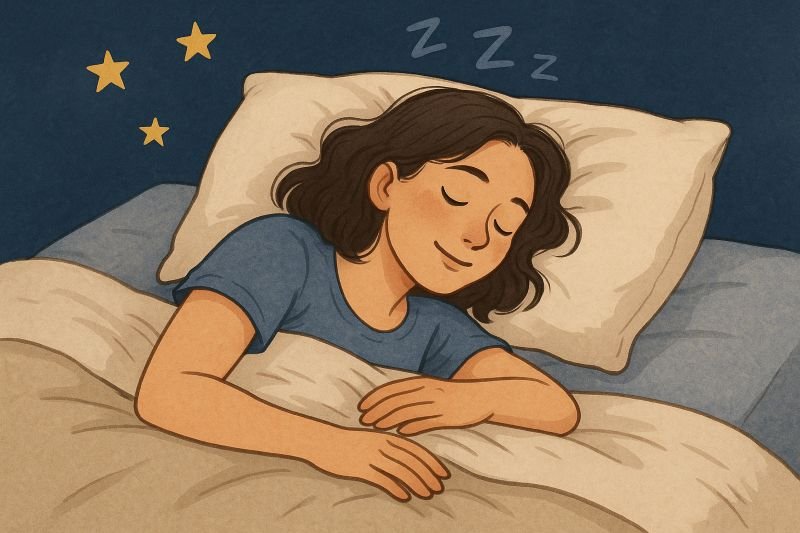And it’s no surprise—sleep affects nearly every aspect of physical and mental well-being. Research confirms that getting 7–9 hours of restful sleep each night sharpens memory, boosts concentration, strengthens emotional balance, and supports overall health.
Why Sleep Matters for Your Health
Sleep isn’t just downtime; it’s when your body and brain perform essential functions. Adequate, high-quality sleep helps to:
- Sharpen memory & cognition: Sleep strengthens neural connections, helping the brain process and store new information, which boosts learning and recall.
- Improve concentration and productivity: Adequate rest keeps your mind sharp, improving focus, decision-making, and problem-solving throughout the day.
- Stabilize emotional balance and mood: Quality sleep regulates mood-related chemicals, reducing irritability, anxiety, and risk of depression.
- Strengthen immunity: During sleep, the body produces infection-fighting proteins, making you more resilient against colds and illnesses.
- Support metabolic and cardiovascular health: Proper sleep balances appetite hormones and helps regulate blood pressure, lowering risks of obesity, diabetes, and heart disease.
For more on the health benefits of sleep, see the CDC’s official overview of sleep and health CDC – About Sleep & Why It Matters
How Much Sleep Do You Need?
While needs vary by person and age, research and public health guidelines generally converge on this range:
- Most adults need 7 hours or more of sleep per night to support optimal health.
- In many official guidelines (CDC, public health resources), sleeping less than 7 hours is considered insufficient for adults CDC
How to Improve Your Sleep
These habits are supported by health institutions and sleep science:
- Stick to a consistent sleep schedule (same bedtime & wake time daily)
- Wind-down routine before bed: dim lights, avoid screens, relax 1–1.5 hours before sleep
- Optimize your sleep environment: cool, dark, quiet, comfortable bedding
- Limit stimulants and heavy meals before bedtime (caffeine, nicotine, alcohol, large or spicy foods)
- Use your bedroom only for sleep and intimacy (avoid working, watching TV in bed)
- Prioritize daylight exposure and physical activity during day – helps regulate circadian rhythm
- Avoid long naps late in the day (if napping, keep it short and early) CDC
Harvard Medical School also publishes a practical guide to sleep hygiene with evidence-based practices:
Harvard Health – Sleep Hygiene: Simple Practices for Better Rest
FAQs (Frequently Asked Questions)
- Q1: What if I sleep 7–9 hours but still feel tired?
A: Poor sleep quality (frequent awakenings, sleep disorders, stress) may be the issue. Consult a sleep specialist if this persists. - Q2: Are naps okay?
A: Short naps (15–30 min) can be beneficial. Avoid long or late naps, which may disrupt nighttime sleep cycles. - Q3: Does lack of sleep affect body weight?
A: Yes. Sleep deprivation disrupts hormones (ghrelin, leptin), increases cravings, and is associated with weight gain and metabolic issues. - Q4: How does sleep impact mental health?
A: Chronic inadequate sleep increases risks of depression, anxiety, irritability, and impaired stress resilience. - Q5: Can I “catch up” on sleep during weekends?
A: Occasional catch-up sleep helps, but large shifts in sleep timing (weekend vs weekday) can disrupt your internal clock (circadian rhythm).
Getting sufficient, high-quality sleep is a cornerstone of good health. It impacts your brain, emotions, immunity, and body systems. By cultivating better sleep habits—consistent schedule, relaxing bedtime routine, good environment—you can improve both how much you sleep and how well you sleep.
You may also interested in Stop smoking: Why it’s worth quitting


[…] You may also interested on Get sufficient sleep: Why quality rest is crucial for your health […]